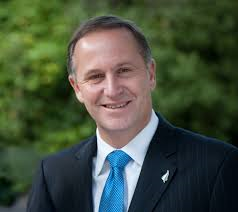


Posted November 28, 2014
Political leaders hate apologising. They see it as a weakness and a way of handing ammunition to their opponents. The only exception to this recently was David Cunliffe who apologised for everything from being a man to going on holiday with his family.
 So should a political leader apologise? That depends. Clearly if the leader did something wrong, an apology is appropriate. The big issue here is whether John Key should apologise for something his staff did. Forgetting all the speculation around the Dirty Politics issue, it does seem clear that a member of his staff did take advantage of a security document for political gain.
So should a political leader apologise? That depends. Clearly if the leader did something wrong, an apology is appropriate. The big issue here is whether John Key should apologise for something his staff did. Forgetting all the speculation around the Dirty Politics issue, it does seem clear that a member of his staff did take advantage of a security document for political gain.
My belief is that he should apologise for that, not because he did it, but because the buck stops with him. He should also make it very clear that he is not apologising for anything else. That’s because nothing else has been proven.
We tell out media training clients that an apology is often a good idea. That’s because people (including potential voters) are more concerned how a leaders responds to an issue, rather than the issue itself. They don’t see it as a sign of weakness, they see it as a sign of strength.
They clearly weren’t concerned about dirty politics when they cast their vote this year. They like John Key and National’s economic policies. But if some now feel there was some element of ‘dirty politics’ at play, they would probably like their leader to acknowledge that (even if he wasn’t directly involved.)
If he did that I’m sure they’d accept it and move on. It would also shut the story down because it’s only Key’s refusal to apologise that is keeping it alive. In a nutshell, Key would be respected for apologising and the media would move onto another issue. Then National could get back on the front foot and set its own agenda.
For more on my media training or crisis communication planning workshops, contact [email protected] or 029 200 8555.